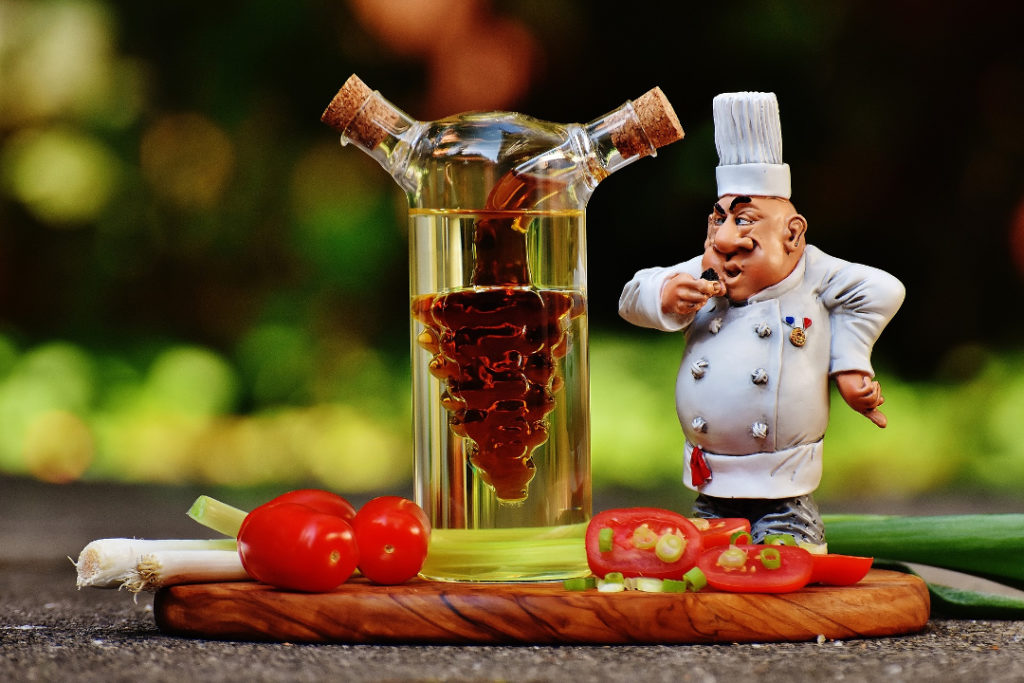
The human body needs dietary
fats for proper health and nutrition but there exists a lot of confusion regarding the best oil for cooking in India. Whether it is salad, starter or a main course, you need oil for preparation. We cannot avoid oil while cooking any dish. But choosing the right cooking oil can save you from
heart diseases,
cholesterol blockages, obesity and
digestion problems. There are a few oil basics which will help you select the right oil.
Source of oil
Cooking oil is either obtained from animal or vegetables. Vegetable oils are a healthy eating option. There are several vegetable based cooking oils in the Indian market. How much oil to use depends on the oil, the method of cooking and utensil used to prepare the dish.
Importance of dietary fat
Fats are the biggest source of energy and are important for our body to perform the different functions, more so for children. They are required for better absorption of many nutrients like fat-soluble vitamins (e.g., vitamin A), hormone functions, for glowing skin and brain health. When thinking about diet plans, the first thing we want to eliminate from our menu is oil and butter. But the truth is
we do need a moderate amount of oil and fat for the proper functioning of our body and brain. Along with oils, butter and ghee, other animal products, fruits like avocado and nuts are natural sources of fats.
Goods Vs Bad Fats
Just like anything else, we can categorize fats broadly into 3 types:
Worst fats: Trans-fats from hydrogenated plant oils are very harmful for your health and nutrition. When we ingest liquid vegetable oils, which have been converted into solid fats, they directly raise artery clogging bad cholesterol (LDL – Low-Density Lipoprotein) and lower good cholesterol (HDL- High-Density Lipoprotein) in the body. These are usually found in processed food and takeaways.
Bad fats: or saturated fats are those that turn solid at room temperature. For example, butter, ghee.
Helpful fats: It includes poly unsaturated and mono unsaturated fatty acids. It remains liquid at room temperature, like sunflower oil, peanut oil, sesame oil, olive oil, rice-bran oil, canola oil.
Every oil has its limits
Although different types of oil have various nutrition compositions, their calories per serving are the same (one tablespoon of any type of oil has about 145kcals). Many people think that olive oil is the best. Extra virgin olive oil does contain higher polyphenols (antioxidants) than just refined olive oil, but that also depends on the freshness of the oil. Olive oil is not good for deep-frying because of its low smoking point – it can break down into toxic components. Also, in a country like India, olive oil is imported in large quantities from Mediterranean countries. This may increase the cost. Olive oil also imparts a strong flavor/odor and does not blend well with traditional Indian cooking. Just like any other oil or fat, olive oil should not exceed the daily dietary requirement.
Avoid overheating oils and avoid reusing oils for cooking
Choose oils based on type of cooking
Instead of using only one kind of oil for everything, it is beneficial to use 2-3 different kinds of healthy cooking oils for different purposes thus balancing the benefits and risks of different types. Extra virgin olive oil or pumpkin seed oil can be used for salad dressings. A little ghee can be used on hot rotis and chapatis. Sunflower, safflower or corn oil can be used for making curries and mustard or coconut oil for other traditional cooking. The secret is to keep a measure of the total amount of oil used for the entire cooking of the day for a family and then correlate that with the age group and requirements of family members. Also, a rotation of sunflower oil to peanut oil or rice bran oil and vice versa can be helpful.
Margarine Vs Butter
Margarine usually scores against butter as it is synthesized from plants while butter contains animal fat. But margarine can contain trans-fat and poses more danger for the heart if not chosen wisely. In general, the more solid the margarine is, the more trans-fat it may contain. It is advisable to read the labels for saturated and trans-fat content while buying margarine and stick to the margarine spreads rather than the solid ones. Butter enhances the flavor of any food and contains Vitamin A. So a little butter really goes a long way for your health and nutrition.
However, fat is one of the major nutrients for people to stay healthy and it should be enjoyed in moderation. Overconsumption of this energy dense food can have adverse effects on overall health.
Like this:
Like Loading...
Related Articles

